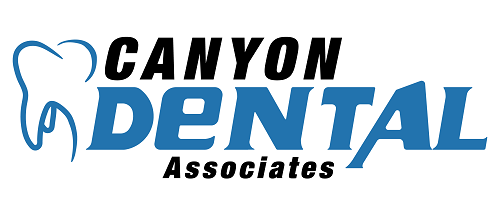Dental HMO vs PPO Dental Insurance: What Are Your Options
Choosing a dental insurance plan can be overwhelming. Two of the most common types of dental insurance in the US are Health Maintenance Organizations (HMOs) and Preferred Provider Organizations (PPOs). Each has its pros and cons. This post will break it down so you can make the right choice for your teeth.

What is HMO Dental Insurance?
Features:
-
Network Restrictions: HMO plans require you to choose a primary care dentist from a network of providers. All your dental care needs must be channeled through this dentist except in emergencies.
-
Lower Out-of-Pocket Costs: HMO plans have lower monthly premiums and minimal or no deductibles. You pay a fixed copay for services.
-
Preauthorization Required: Some procedures may require pre-approval from the insurance company.
Pros:
-
Good for routine dental care.
-
No deductibles and low or no copays.
-
Simple fee structure.
Cons:
-
Limited dentist selection.
-
Referrals are required for specialist care.
-
May not cover out-of-network emergencies.

What is PPO Dental Insurance?
Features:
-
Flexibility to see any dentist, in-network or out-of-network, no referral required.
-
Balance Billing: If you see an out-of-network dentist, you may be responsible for the difference between what the insurance pays and the dentist’s fee.
Deductibles and Coinsurance: PPOs have a deductible you must meet before the insurance starts paying. After that you pay a percentage of the cost (coinsurance) and the insurance pays the rest.
Pros:
-
More flexibility to choose a dentist with PPO dental plans.
-
Coverage for out-of-network care, but at a higher cost.
-
No need for referrals for specialist care.
Cons:
-
Higher monthly premiums are a downside of PPO insurance plans.
-
You may have to pay a deductible.
-
Coinsurance and balance billing can add to out-of-pocket costs.
When choosing between an HMO and PPO dental plan consider:
-
Budget: If cost is your top priority and you don’t mind limited provider selection, HMO might be the way to go. If you’re willing to pay more for flexibility to choose your dentist, go with PPO.
-
Dental Needs: If you think you’ll need specialized dental work that may require multiple specialists, PPO might be better without the need for referrals.
-
Provider Preference: If you have a preferred dentist, check if they are in the HMO network or what their rates are under a PPO plan.
HMO vs PPO Plans
When choosing between a Dental HMO (Health Maintenance Organization) and a Dental PPO (Preferred Provider Organization) plan, the key differences matter. Each plan type has its own features that suits different needs and preferences so be sure to evaluate them carefully.
Network Restrictions
One of the main differences between HMO and PPO plans is the network restrictions. HMO plans require you to choose a primary care dentist from a network of in-network providers. All your dental care needs must be channeled through this dentist and you need referrals to see specialists. This limits your provider selection but often means lower out-of-pocket costs.
PPO plans offer more flexibility. You can see any licensed dentist, in-network or out-of-network. You’ll save more by seeing in-network dentists but the option to see out-of-network dentists without a referral is a big plus especially if you have a preferred dentist who’s not in the HMO network.
Out-of-Network Coverage
Another big difference is how each plan handles out-of-network coverage. HMO plans do not cover out-of-network services so if you see a dentist outside the network you’ll be responsible for the full cost. This can be a problem if you need specialized care unavailable in the HMO network.
PPO plans provide some coverage for out-of-network services but at a higher cost. This means you can see any dentist but you may pay more out-of-pocket if the dentist is not in the PPO network. This can be good if you need specialized care or if you travel frequently and need access to a wider range of providers.
Plan Details
When comparing HMO and PPO plans be sure to get into the details to determine which plan is right for you. Here are some key points to consider:
Deductibles and Coinsurance
HMO plans have lower deductibles and coinsurance so they’re a good choice for routine dental care. With an HMO plan, you may pay a fixed copay for services and there’s no deductible to meet. This means lower out-of-pocket costs, especially for preventive and basic dental services.
PPO plans have higher deductibles and coinsurance. You need to meet the deductible before the insurance starts paying and then you share the cost of services through coinsurance. Although the costs are higher PPO plans offer more comprehensive coverage including major services like crowns, bridges, and dentures. PPO plans also have a higher maximum out-of-pocket (MOOP) limit which caps the total amount you’ll pay for covered services in a plan year.
Ultimately it’s up to you to decide between an HMO and PPO plan. If you want flexibility in choosing your dentist and are willing to pay a higher premium then a PPO plan might be the way to go. If you’re looking for a more affordable option with lower out-of-pocket costs then an HMO plan might be the way to go.
Be sure to review the details of each plan including network restrictions, out-of-network coverage, deductibles, and coinsurance before you decide. Also, consult with your primary care dentist or a dental insurance expert to determine which plan is best for you.
What to Know About Your Plan
Regardless of the plan you choose you need to fully understand your dental insurance benefits. This includes knowing your coverage for preventive care (cleanings and check-ups), basic procedures (fillings and root canals), and major services (crowns and bridges). Also know the waiting periods, annual maximums, and how the plan handles pre-existing conditions.
Make Informed Decisions About Your Dental Health
Ultimately it’s up to you to decide between HMO and PPO dental insurance plans. By knowing the differences, benefits, and limitations of each plan you can make a decision that fits your oral health and budget. Remember the right dental insurance plan helps manage costs and gets you to the dentist regularly for long-term dental health.


